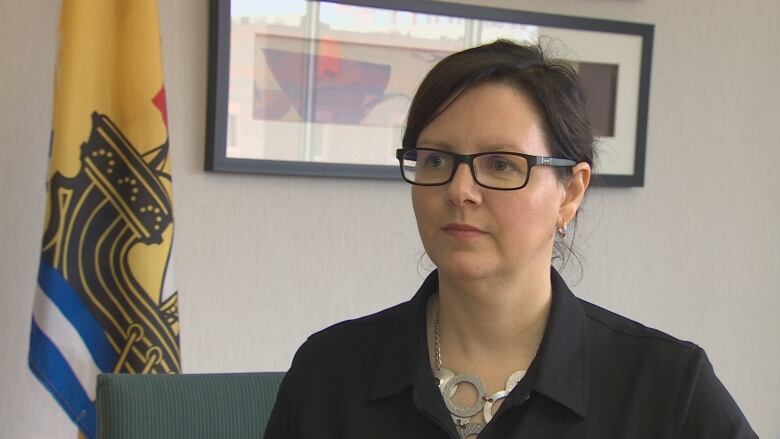Province didn't follow own rules for water quality at Parlee Beach
Data released through access to information shows water quality even worse than province had let on

Water quality at Parlee Beach was flagged as fair or good on 17 days last summer when the park's own, less-than-rigorous guidelines considered it poor, according to new information from the Department of Tourism.
Laboratory results obtained by residents through right to information requests show that on 45 days in June, July and August, fecal bacteria levels were high enough that young children and the elderly shouldn't have gone in the water.
But, as CBC News previously reported, the beach told visitors that water quality was poor on only 28 days during that period.
- Water monitoring at Parlee Beach failed to meet Canadian guidelines
- Parlee's pollution problem: 'Politicians are getting in the way'
Parlee Beach follows a set of made-in-New Brunswick standards for determining whether the levels of fecal bacteria — human and animal waste — should give the water quality a good, fair or poor rating.
The guidelines allow the beach to remain open even if it has levels of E. coli and fecal bacteria that would close it to swimmers under the federal guidelines known as the Guidelines for Canadian Recreational Water Quality.
| 2014 | 2015 | 2016 | |
| Days rated poor by park staff | 19 | 16 | 28 |
| Actual days rated poor using NB health guidelines | 47 | 43 | 45 |
In July and August last summer, there were an additional 17 days when the water was rated by park staff as fair or good — ratings that come with little or no restrictions on beach use — when they should have rated it as poor.
For example, the water received a good rating on several days in July 2015 when fecal bacteria levels were as much as 20 times the levels that would have closed a beach anywhere else in the country because of the risk of waterborne illnesses.
It is not clear why Parlee Beach staff were not applying the guidelines or if it was deliberately done.
CBC News compared data from daily lifeguard checklists for the past three years with the lab results for fecal streptococcus.
The documents with the data were released by the tourism department after a right-to-information request and shared with CBC News.
Scott Mawdsley, a medical doctor with a cottage at Parlee Beach, also analyzed the data for the past beach season.
He said he became concerned when he started noticing discrepancies and believes a change was made designed to reduce the number of poor days, without advising the public.
''By changing the criteria, and therefore the number of poor days, along with inadequate beach signage, the current government is risking illness rather than simply doing the right thing,'' said Mawdsley.
Health denies making changes
Dr. Jennifer Russell, acting chief medical officer of health, said she was unaware of any discrepancies in water quality ratings.
''There was no directive from the office of the chief to alter the interpretation of the guidelines,'' said Russell.
''I can tell you that the guidelines as laid out by the province we have followed to a tee."

Officials with the tourism department, which shares responsibility with Health for water-monitoring at Parlee Beach, receives the test results and uses them to assign a rating during day-to-day operations, have declined repeated requests for interviews since last summer.
After the latest request from CBC News, tourism officials did not make anyone available for an interview and instead said Russell would answer questions.
But when asked about discrepancies between her department's own criteria and ratings given by park staff, Russell said she could not speak to data produced by an outside source, referring to the documents obtained from the tourism department.
Need for public inquiry
The province's response so far has been little comfort for Mawdsley, who wrote to the Department of Health with his concerns.
He is calling for a public inquiry into the oversight of water quality at Parlee Beach.

Brenda Ryan, a Parlee Beach cottage owner who has been collecting data for the past three years, since she started noticing peculiarities in water monitoring, finds it difficult to trust the province will act to protect public health.
''Every time we get a response from the government it seems to be different,'' said Ryan.
''The story keeps changing — or the information that comes out is different, and more concerning. So I don't have a whole lot of confidence in the water quality committee, or in the province actually.''

